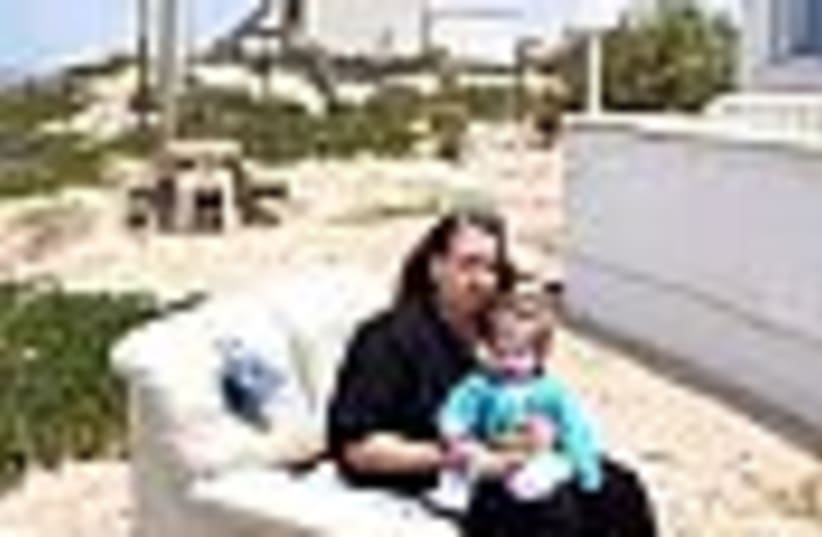They were all survivors, bearing the angered and alternately vacant countenance of people who knew it could have been them lying bleeding on the Judean gravel. Hundreds of people shuffled past the morbidly familiar tombstone workshops at the entrance of Jerusalem's Har Hamenuhot Cemetery to pay respects to Kineret Mandel and Matat Rosenfeld Adler.
Those two young women were among three Israelis murdered in Sunday's drive-by shooting in Gush Etzion, which seems to have unraveled a year of relative quiet.
Over the past five years, with the worst of it from 2000-2002, Palestinian bullets have zipped past many of those gathered at the cemetery as they drove to their settlements or businesses. Sunday's shooting reminded the mourners how death haunted them on the twisting West Bank roads. Today those roads, threading barren biblical hills, are littered with memorials to modern martyrs.
In 2001 then-Council of Jewish Communities in Judea Samaria and Gaza spokeswoman Yehudit Tayar drove a terrified young reporter on his first tour of the West Bank with her pistol unholstered and resting beneath her thigh. Roadside shootings were then the most convenient terrorist attack and many settlers, including Kedumim's Rabbi Daniel Shiloh, believe it could be once again.
But fatigue kicked in from IDF reprisals, Palestinian Authority chairman Yasser Arafat died and the Palestinian street appeared to mellow. In fact, just like the Palestinians lined up on Route 60 Monday, after the IDF closed large stretches of the West Bank's major north-south artery, the settlers benefited from the recent quiet. Life began to feel safer. Guests began to arrive at many settlements' gates.
Since Israel's withdrawal from Gaza in September, Israeli intelligence officials forecasted a storm of violence in the West Bank. For Palestinian terrorist groups, the murder of settlers on West Bank roads is easy and less contentious for Palestinian public consumption than suicide bombings inside Israel proper.
One woman at the funeral who called herself "a Jewess from the Land of Israel," said she and her family - many of whom hitch rides on those very same roads - felt like pawns in a larger political game.
"The Arabs know we are weak. We are a people with no identity, no faith, nothing," she concluded.
"We just hope we won't have to pay for the government's weakness," said Yesha secretary-general Avner Shimoni. Settler leaders blamed Prime Minister Ariel Sharon's easing of restrictions on the Palestinians for the attack. They also blamed his decision to yank Israel from its 38-year occupation of the Gaza Strip.
In the aftermath of the withdrawal, the young women's double funeral only cements the settlers' increasing sense of alienation - they feel like second-class citizens sacrificed on a flimsy altar of peace with the Palestinians. Their separation from "Israel proper" has bound what was already Israel's most closely knit group still tighter.
At the funeral Yisrael Adler, Matat Adler's 21-year old widower, warbled into a microphone: "After you die, I will continue to live, don't worry, I'll do it. Just give me the strength." This is, after all, a community that takes pride in calling itself "Israel's flak jacket."
| More about: | Ariel Sharon, Yasser Arafat, Israel, Palestinian National Authority |
